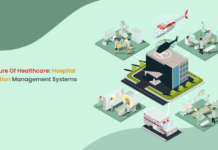In today’s fast-paced business landscape, staying ahead of the curve is essential for any entrepreneur. As technology continues to evolve, one innovation stands out for its transformative potential in the marketing realm: Artificial Intelligence (AI).
With its ability to process vast amounts of data, automate tasks, and predict consumer behavior, AI is revolutionizing the way businesses approach marketing.
In this article, we will delve into the dynamic landscape of AI in marketing, exploring its key components and its role in creating a competitive edge for businesses.
1. AI in Marketing: An Overview
At its core, artificial intelligence refers to the simulation of human intelligence in machines, allowing them to perform tasks that typically require human cognition. AI’s primary components include machine learning, natural language processing, and data analytics.
In the context of marketing, AI’s relevance cannot be understated. It opens avenues to analyze vast datasets, uncover valuable insights, and predict trends that can guide strategic decisions.
2. The Role of AI in Marketing Campaigns
In the ever-evolving world of marketing, campaigns are the heartbeat of any business’s outreach efforts. Harnessing the power of AI through marketing automation has become a game-changer.
Through marketing automation, businesses can streamline routine tasks, manage customer interactions, and optimize their campaigns with unprecedented precision. As we delve deeper, we will explore how AI functions as the driving force behind this transformation.
3. AI-Powered Data Analytics
Data is the cornerstone of effective marketing strategies. AI’s role in this realm is nothing short of revolutionary. Imagine being able to process massive volumes of data quickly and extract actionable insights almost effortlessly.
This is where AI shines. Through its sophisticated algorithms, AI-driven data analytics enables businesses to identify trends, preferences, and emerging market shifts. This empowers business owners to make informed decisions, pivot strategies, and seize opportunities in real time.
4. Personalization and Customer Experience
In today’s customer-centric world, personalization is the key to winning hearts and wallets. AI plays an integral role in tailoring customer experiences through precise insights. Using predictive analytics, businesses can anticipate individual preferences, behaviors, and needs.
This enables the creation of hyper-targeted content, personalized recommendations, and timely communication. The result? Customers feel understood and valued, fostering brand loyalty and driving sales.
5. Marketing Automation
The repetitive nature of certain marketing tasks often consumes precious time and resources. Enter AI-driven marketing automation. This technology takes routine tasks—such as email campaigns, social media scheduling, and customer segmentation—and handles them seamlessly.
The benefits are manifold: increased efficiency, reduced manual labor, and more consistent customer interactions. By automating the mundane, businesses can redirect their focus to strategic initiatives that drive growth.
6. Predictive Analytics: Anticipating the Future
The ability to foresee future trends is a superpower in the business world. Through predictive analytics powered by AI, this superpower has become attainable. Businesses can analyze historical data, identify patterns, and predict consumer behavior with remarkable accuracy.
This insight helps in targeting the right audience, optimizing campaigns, and allocating resources effectively. Ultimately, this leads to higher ROI and a stronger market presence.
Conclusion: A Future Driven by AI
In the dynamic landscape of modern business, leveraging AI in marketing is no longer a choice; it’s a necessity. As we’ve explored, AI’s impact is profound and multifaceted.
From automating tasks through marketing automation to unlocking the potential of predictive analytics, AI equips businesses with the tools to thrive in a fiercely competitive market.
Embracing AI isn’t just about staying relevant; it’s about propelling your business towards sustained success.
In the journey towards an AI-driven marketing future, remember that adaptation is key. The insights gained from AI-powered data analytics and the personalization achieved through predictive analytics are invaluable assets.
By integrating AI seamlessly into your marketing strategy, you are not only keeping pace with the evolving business landscape but also setting the stage for unparalleled growth.
In conclusion, AI isn’t just the future of marketing—it’s the present reality that business owners can harness to create a brighter, more prosperous tomorrow.



















![Taxi Booking App Development Companies in the USA [2024] Taxi Booking App Development Companies in USA](https://www.thetechnoverts.com/wp-content/uploads/2024/05/Taxi-Booking-App-Development-Companies-in-USA-218x150.jpg)

